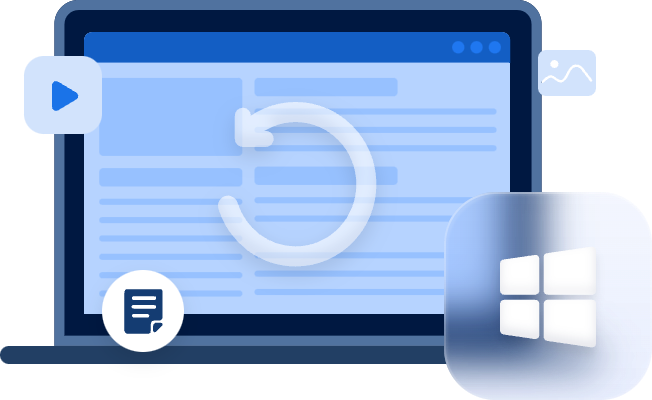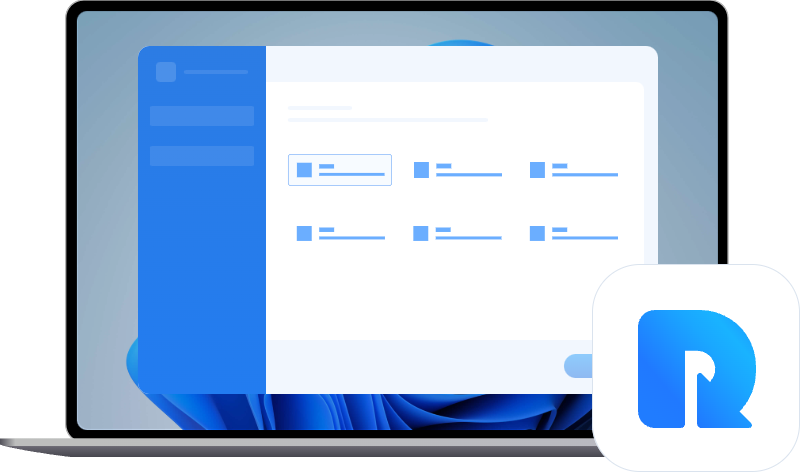Resolving the Windows Media Player Encountering a Problem While Playing the File
Join us on a journey of unraveling the complexities surrounding Windows Media Player as it encounters a problem while playing a file. Our guide, "Mastering Media Playback," delves into the background, investigates reasons behind playback issues, and provides step-by-step guidance to recover missing files and troubleshoot Windows Media Player using MyRecover.
Windows Media Player stands as a cornerstone in the Windows ecosystem, serving as a go-to platform for media enthusiasts. However, the tranquility of media playback is often disrupted by the perplexing message indicating a problem.
Understanding the background of this challenge is crucial. Users find themselves at a crossroads, seeking answers to why Windows Media Player encounters a problem while playing a file.
Possible Reasons Why Windows Media Player Encountered a Problem While Playing the File
1. Corrupted Media File:
Background: Corrupted media files can send ripples through the seamless playback experience on Windows Media Player.
2. Outdated Codecs:
Background: The absence or outdated status of essential codecs poses a hurdle in decoding media files efficiently.
3. Software Conflict:
Background: Conflicts with other installed software or third-party codecs can introduce turbulence to Windows Media Player functionality.
4. Outdated Windows Media Player Version:
Background: The compatibility dance can falter when using an outdated version of Windows Media Player.
Recovering Missing Files with MyRecover: Your File Resurrection Partner
Amidst the challenges presented by Windows Media Player errors, MyRecover emerges as the unsung hero, ready to resurrect missing files with its arsenal of features:
Features:
1. Selective File Recovery: MyRecover stands as a beacon, allowing users to selectively recover missing files with surgical precision.
2. Preview Functionality: An invaluable trait, MyRecover lets users preview recoverable files, ensuring informed decisions before initiating recovery.
3. User-Friendly Interface: MyRecover is not just powerful but also user-friendly, making file recovery an accessible feat for users of all levels.
Operating Steps:
1. Download and Install MyRecover:
MyRecover's journey begins with a simple download and installation on your computer.
2. Select File Type and Location:
Navigate within MyRecover, choosing the file type you intend to recover and pinpointing the location of the missing file.
3. Initiate Scan:
With a click, set the scan in motion, allowing MyRecover to traverse the depths of your system, identifying recoverable files.
4. Preview and Recover:
Post-scan, engage in a preview session, observing the recoverable files. Handpick the desired file and execute the recovery, securing it in a designated haven.
Feasible Ways to Fix Windows Media Player Playback Issues
1. Update Windows Media Player:
Background: Ensuring you have the latest Windows Media Player iteration is foundational.
Steps: Navigate the Windows Update settings or head to the official Microsoft website for a direct download of the newest version.
2. Verify File Integrity:
Background: The integrity of the media file under scrutiny needs confirmation.
Steps: Test the file's playback in an alternative media player, helping identify if the issue is exclusive to Windows Media Player.
3. Update Codecs:
Background: The backbone of media decoding, codecs, require regular updates for uninterrupted playback.
Steps: Install or update audio and video codecs, ensuring they align harmoniously with Windows Media Player.
4. Disable Third-Party Codecs:
Background: External codecs might be the saboteurs introducing conflicts to media player functionality.
Steps: Temporarily disarm or bid adieu to third-party codecs. Observe Windows Media Player's performance for signs of improvement.
5. Run Windows Media Player Troubleshooter:
Background: Built-in troubleshooters are the unsung heroes in the Windows ecosystem.
Steps: Navigate to the Windows Settings, seek refuge under Update & Security > Troubleshoot, and unleash the Windows Media Player troubleshooter.
In Conclusion:
In conclusion, as you navigate the intricate landscape of Windows Media Player encountering a problem while playing a file, armed with knowledge about potential issues and the prowess of MyRecover, seamless media playback beckons. Apply these steps diligently, and elevate your digital experience to new heights.
FAQs:
1. Can MyRecover recover files from any type of media storage?
MyRecover boasts versatility, supporting the recovery of files from a myriad of storage devices including hard drives, USB drives, memory cards, and more.
2. What if MyRecover cannot preview the file I want to recover?
Fear not; if MyRecover's preview function falters, proceed with the recovery process. While not exhaustive, the preview function supports numerous file types, ensuring recovery is still a possibility.
3. Any precautions before updating Windows Media Player?
Exercise caution; secure a backup of essential files before initiating a Windows Media Player update. This precautionary step safeguards against potential data loss during the update process.


